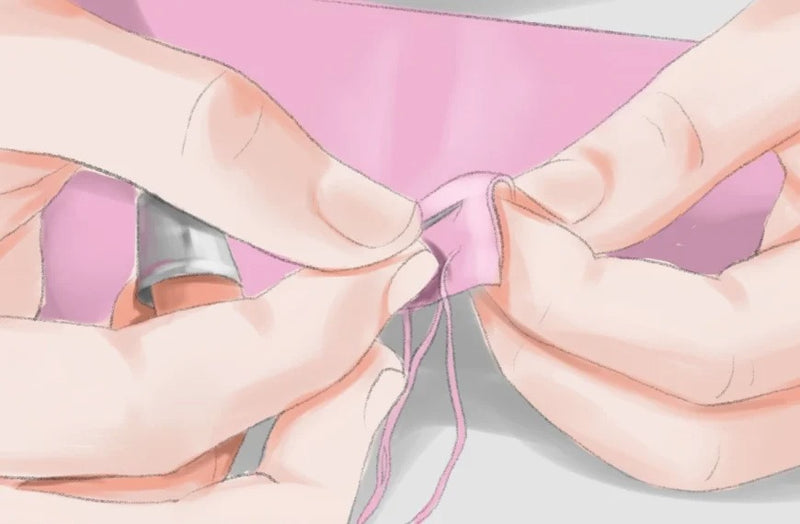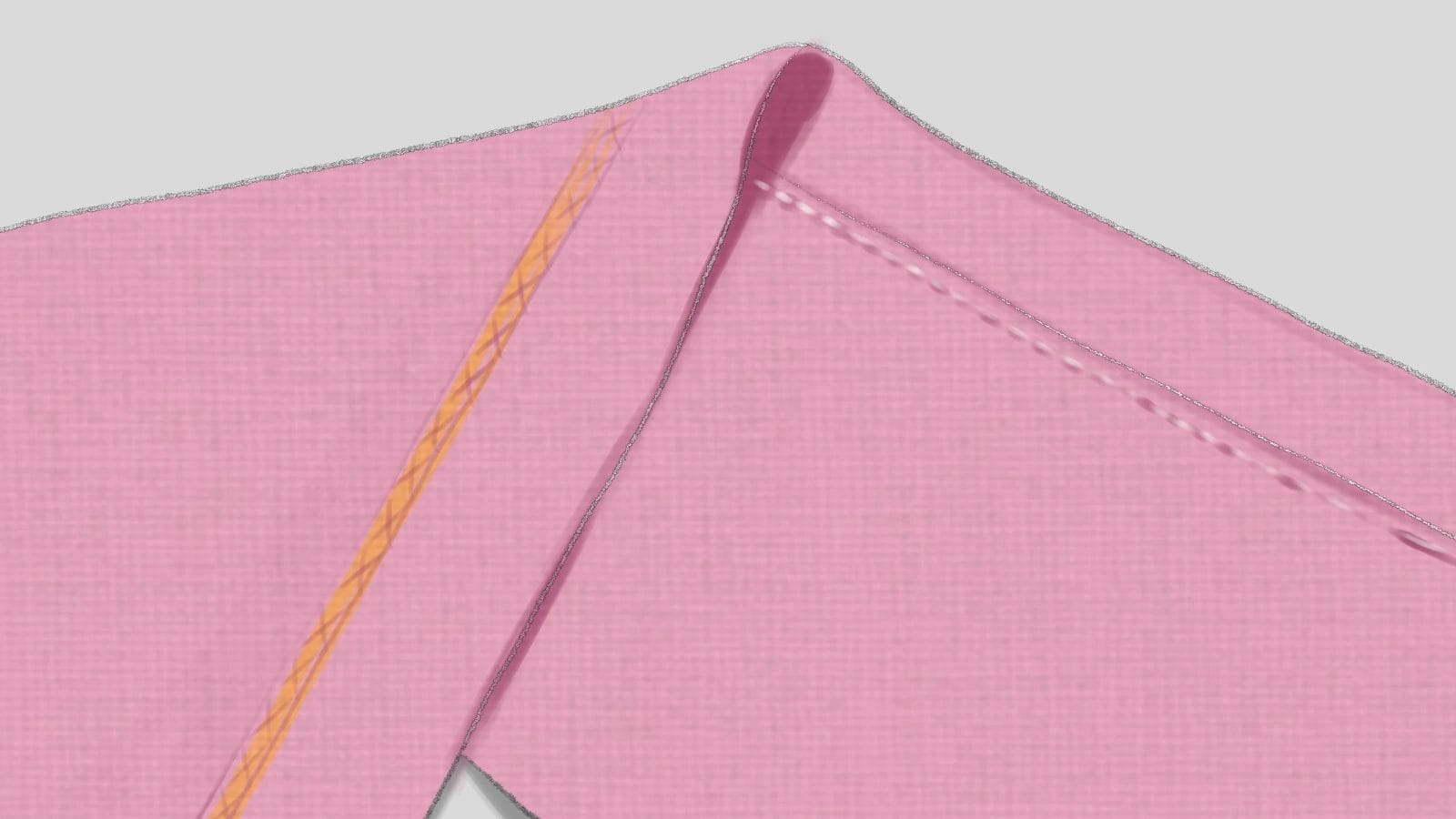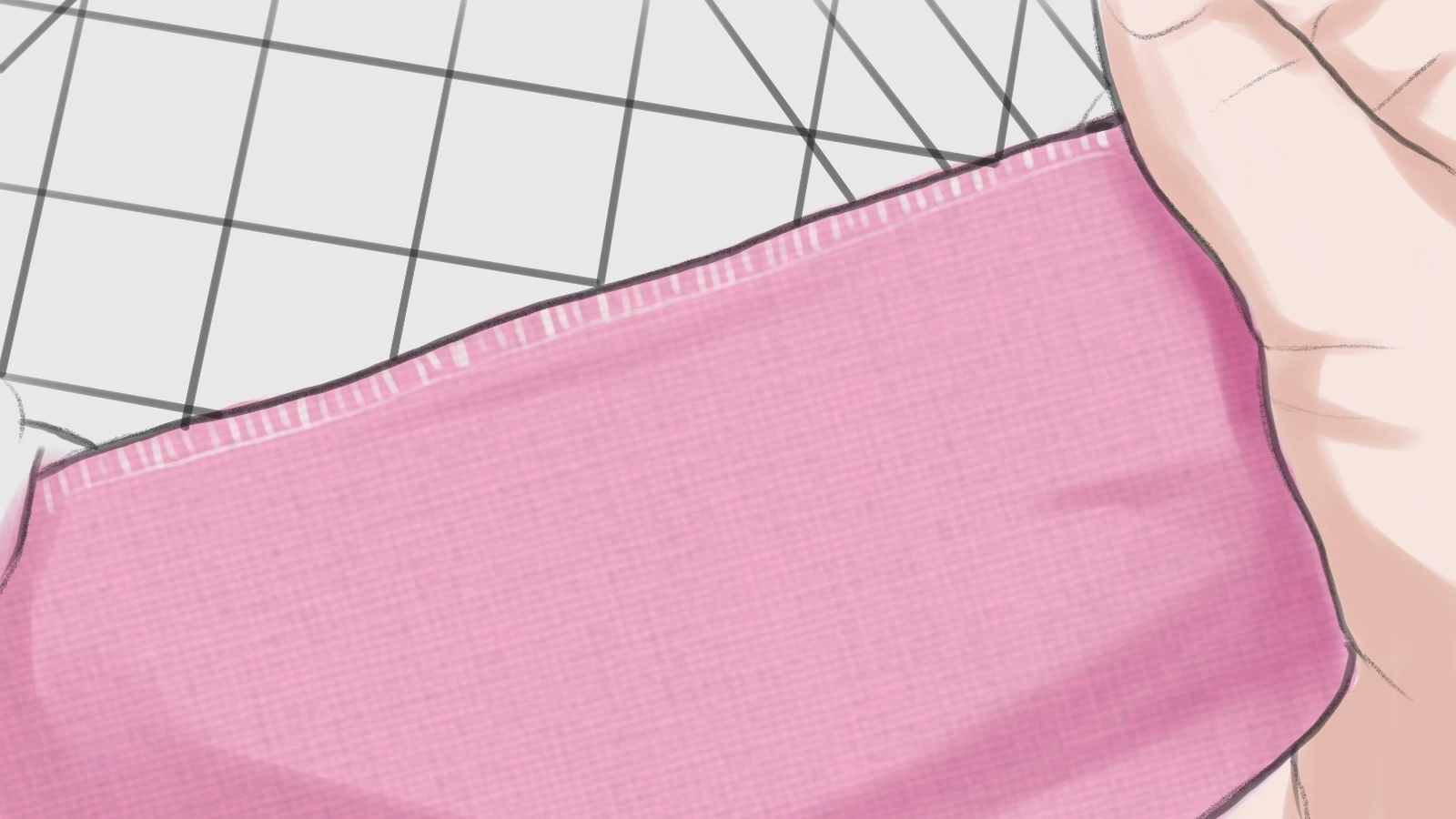
If you're looking to hem stretchy fabric by hand, you might be unsure where to begin. You have a garment that has lost its shape and you want to refresh its look. The good news is that with a few simple steps and patience, you can achieve a professional-looking hem that maintains the fabric's elasticity.
However, before you start, it's important to understand the techniques for working with tricky stretchy fabrics. From selecting the right thread to mastering the perfect stitch, there's more to it than meets the eye.
Key Takeaways
- Use a ballpoint needle to prevent snags and puckering on stretchy fabrics.
- Fold the fabric edge to the desired length, stretching it while folding to avoid puckering.
- Sew small, tight stitches along the folded edge, stretching the fabric while sewing to maintain elasticity.
- Use polyester thread that matches the fabric color for elasticity and a professional finish.
- Trim excess fabric from the hem allowance and press the hem with a warm iron for a clean finish.
Gather the Necessary Materials
Before hemming your stretchy fabric, gather the necessary tools to ensure a successful hand-hemming process.
- Stretchy fabric: The item you want to hem.
- Ballpoint needle: Specially designed for knit and stretchy fabrics to avoid snagging.
- Polyester or nylon thread: These threads have a bit of stretch, which is ideal for stretchy fabrics.
- Fabric scissors: Sharp scissors for clean cuts.
- Pins or clips: To hold the fabric in place while you sew.
- Measuring tape or ruler: To measure the hem accurately.
- Fabric chalk or disappearing ink pen: For marking the hemline.
- Iron and ironing board: Optional, but helpful for pressing the hem before and after sewing.
With these tools, you can create a clean, flexible hem that doesn't compromise the fabric's stretchiness.
How to Hem Stretchy Fabric by Hand: A Step-by-Step Guide
Now that your materials are ready, it's time to start hemming your stretchy fabric by hand.
Step 1: Preparing the Fabric
Before you begin hemming your stretchy fabric, wash and dry it to prevent any further shrinkage that could affect the fit of your finished project. This step ensures that your fabric won't shrink during the hemming process, causing your hem to pucker or lose its shape.
Step 2: Folding and Pinning the Hem
With your fabric prepared, you can begin folding and pinning the hem. Start by folding the edge of the stretchy fabric to the desired hem length, ensuring the fabric is slightly stretched to prevent puckering. This will help maintain the fabric's natural stretch.
Next, use sharp pins to secure the folded hem in place. Position the pins perpendicular to the edge of the fabric to keep it flat and prevent shifting. Make sure the pins are evenly spaced to ensure a smooth, even fold.
Step 3: Sewing the Hem
 Fold the pinned hem over once more to create a narrow tunnel. Then, thread your needle with a length of matching thread and tie a knot at the end to begin sewing the hem.
Fold the pinned hem over once more to create a narrow tunnel. Then, thread your needle with a length of matching thread and tie a knot at the end to begin sewing the hem.
Start sewing a straight stitch along the folded edge using a ballpoint needle. Gently stretch the knit fabric as you go to maintain its elasticity. Make small, even stitches, about 1/4 inch apart, working your way along the hem.
Since you're sewing by hand, you can adjust your stitches to accommodate the fabric's stretchiness. Avoid using a zigzag stitch, as it's better suited for machine sewing. Instead, focus on creating a clean, flexible hem that will move with the fabric by hand.
Step 4: Finishing Touches
You're ready to add the finishing touches to your handmade hem by securing it in place and giving it a professional finish.
To do this, trim any excess fabric from the hem allowance to reduce bulk and prevent bunching.
Next, press the hem with a warm iron to set the stitches and create a clean, professional look. This is especially important when working with stretchy knit fabrics, as it helps maintain their elasticity.
Tips and Tricks for Successfully Hemming Stretchy Fabric
As you hand-hem your stretchy fabric, follow these tips to ensure a successful outcome.
Use Polyester Thread
It's important to use polyester thread when hemming stretchy fabric by hand. This thread provides the necessary elasticity and durability to withstand the fabric's movement. Choose a thread color that closely matches your fabric to create a seamless finish.
When sewing with polyester thread, use a ballpoint needle to prevent snags and maintain the fabric's stretchiness. As you sew, make sure to use small, tight stitches to secure the hem and prevent unraveling.
Avoid Stretching
How do you prevent stretching the fabric while hemming, a crucial step in maintaining its elasticity?
When hand hemming stretchy fabric, it's essential to avoid stretching the fabric as you sew. To do this, use clips or fabric weights instead of traditional pins to minimize fabric distortion.
Gently ease the fabric into place as you sew the hem to maintain its natural stretch. Don't pull or tug on the fabric, as this can cause it to lose its elasticity.
Test on Scrap Fabric
Test your hemming technique on a scrap piece of the same stretchy fabric before sewing the actual garment. This will help you refine your approach and avoid potential mistakes. Experiment with different hemming techniques, needle types, and stitch settings on the scrap fabric to find the most suitable combination. Practice sewing a small hem section to ensure the stitches maintain the stretch of fabric.
You'll also want to test the hem's durability by stretching it in various directions to see if the stitches hold up well. Adjust your hand-sewing technique accordingly to achieve a seamless and stretch-friendly hem on the garment.
Troubleshooting Common Issues
As you work on hemming your stretchy fabric by hand, you may encounter some common issues that can be frustrating. You might notice that your hemline is uneven, your fabric is puckered, or your stitches are loose. Don't worry; these are all fixable problems.
Uneven Hemline
Fixing an uneven hemline on stretchy fabrics can be frustrating. But with proper techniques, you can achieve a professional-looking finish. If you struggle to get a straight hem, watch YouTube tutorials on hemming stretchy fabric for inspiration.
When re-hemming, use a catch stitch or stretch stitch to maintain the fabric's elasticity. As you sew, gently pull the fabric to ensure the hemline stays even and doesn't pucker when the garment is worn.
Sew slowly and accurately along the hemline. With patience and practice, you can fix an uneven hemline and achieve a professional-looking finish on your stretchy fabric garment.
Puckered Fabric
When sewing a hem on stretchy fabric, puckering can be frustrating and ruins the entire garment.
To avoid this issue, use a ballpoint needle designed for knits to prevent snags and pulls. As you sew, gently stretch the fabric to keep the stitches from becoming too tight and causing puckering.
Loose Stitches
Loose stitches can be frustrating when sewing stretchy fabric, but they're often easy to fix. Try using a smaller needle size for better control and precision.
You can also switch to a stretch stitch or zigzag stitch in your sewing machine, which can be more effective than a straight stitch in securing the hem on stretchy fabrics. By making these adjustments, you can achieve a secure and professional-looking hem.
Conclusion
You've successfully hemmed your stretchy fabric by hand!
You've taken the time to carefully fold, pin, and stitch your fabric, ensuring a professional finish.
Your patience and precision have paid off, and you can now enjoy your neatly hemmed garment that retains its stretch and shape.
Go ahead and wear your creation with pride, knowing you've mastered the art of hand-stitching stretchy fabric!
Learn more sewing tips at Longan Craft Blog! Dive into the fabric world with Longancraft!
FAQs
Can I Hand Sew Stretchy Fabric?
You can definitely hand-sew stretchy fabric, and it's a great way to maintain its elasticity. With the right needle and thread, you can create a flexible hem that doesn't restrict the fabric's natural stretch.
How Can I Blind Hem Stitch Stretchable Fabric by Hand?
To blind hem stitch stretchable fabric by hand, follow these steps: fold the edge, pin it, and sew a straight stitch. Make small stitches on the right side and longer stitches on the wrong side, catching a few fibers.
How Can I Hem Pants With Stretch by Hand?
Start by folding the hem to the desired length, pinning it, and sewing a straight stitch while stretching the fabric slightly to maintain its elasticity.


0 comments